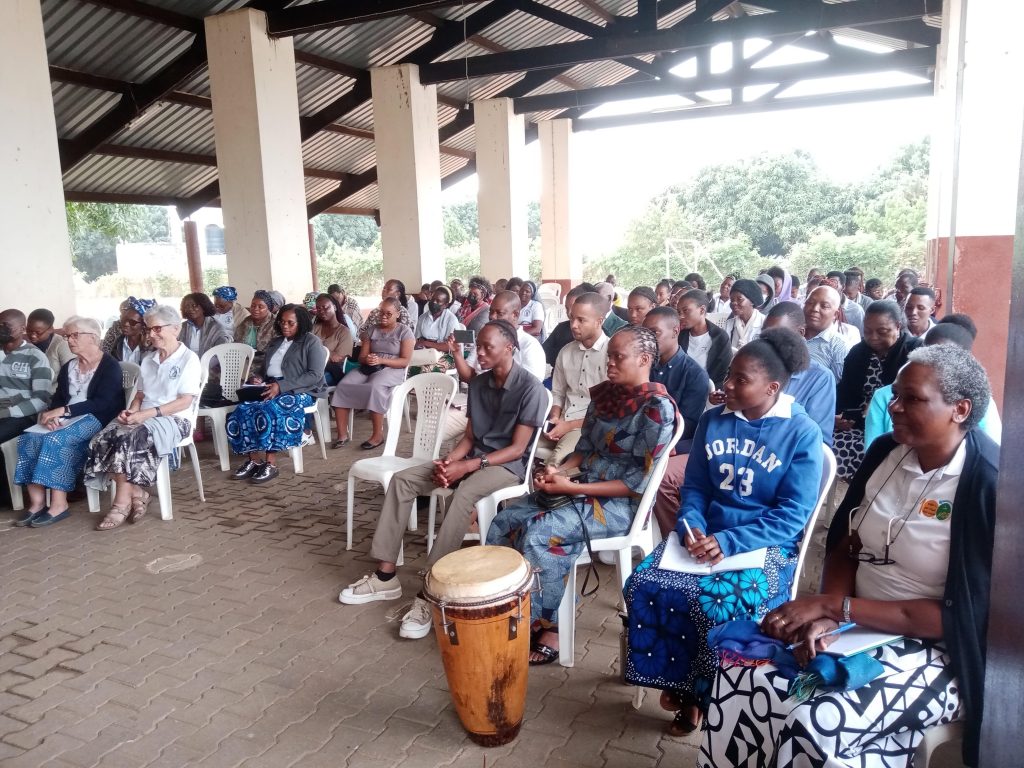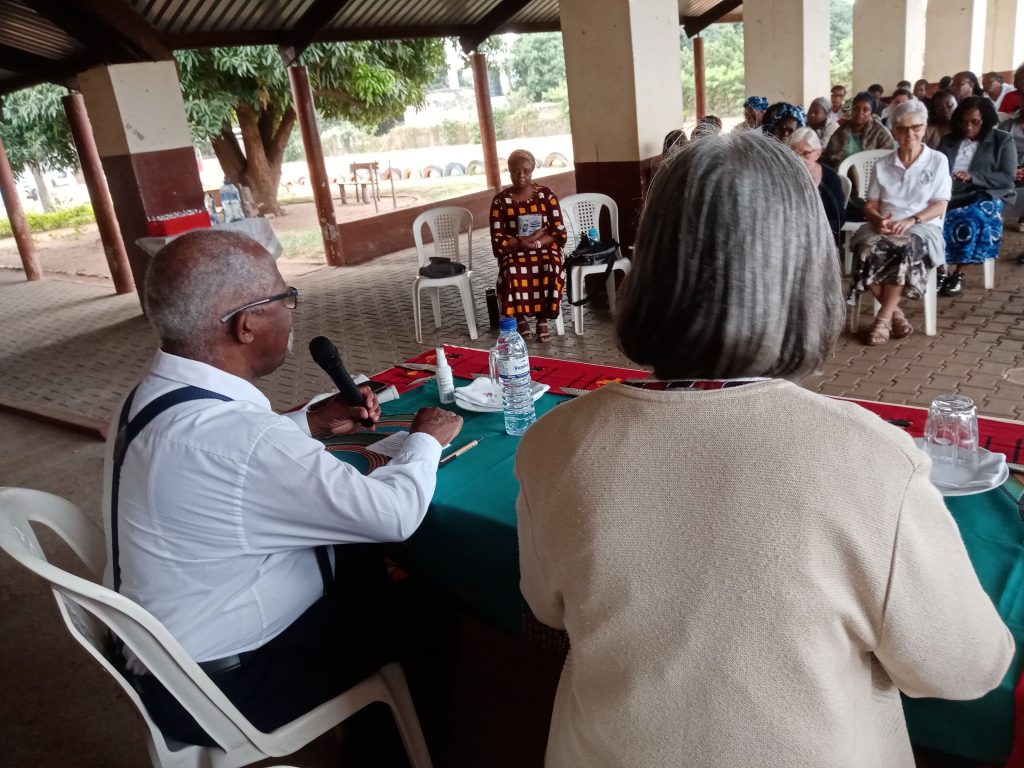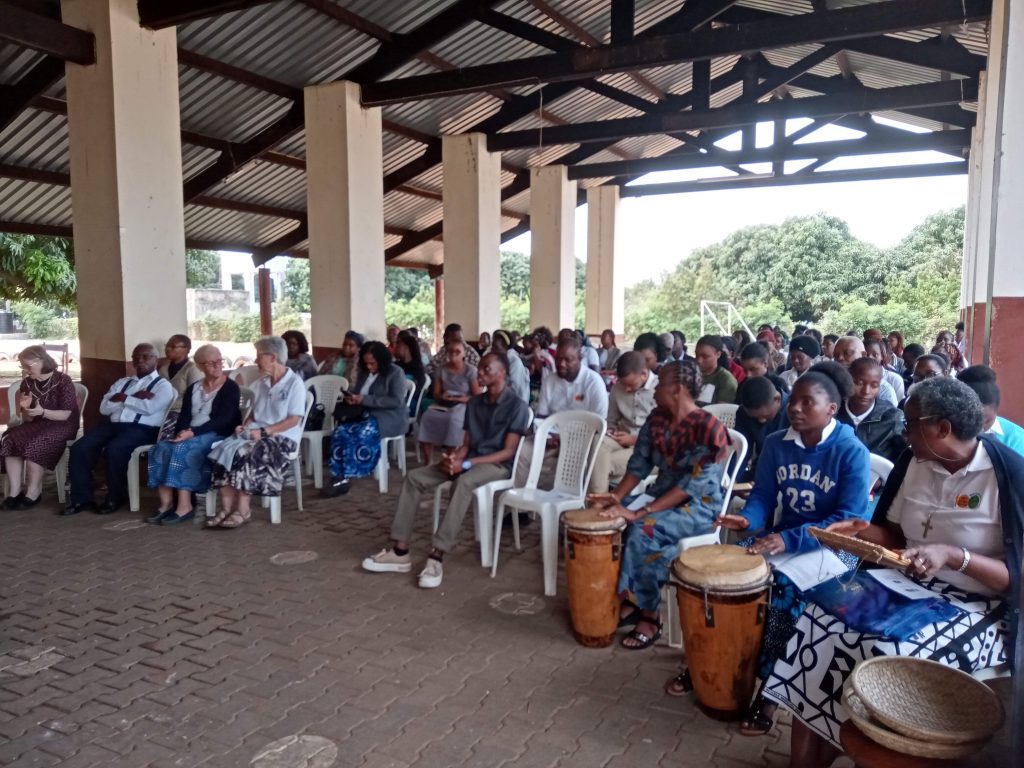MORALIZATION OF SOCIETY
- Hnasmdro
- octubre 18, 2024
- MDR Experiences
- 0
- 219



On September 15th, the third annual meeting of Reality Analysis took place at the Flori Social Center. It was organized by the Dominican Family and Dominican Youth Movement (MDJ) groups, linked to the Dominican Missionaries of the Rosary and the Dominican Sisters of the Education of the Immaculate Conception, with the theme: “The Moralization of Society” with the facilitator Brazão Mazula, former rector of the Eduardo Mondlane University of Mozambique.
When addressing the topic, Mazula raised the following questions: What is the moralization of society? Who moralizes whom? Or on the other hand, are we who moralize society or is it society who moralizes us? When trying to go deeper, he went through the Holy Scriptures quoting LUKE (4:43), where he announces the Good News. With this he tried to show that society only exists on behalf of others, the individual alone is not capable of moralizing others, once we are inserted in the cosmos as people who are also an integral part of society. To talk about Morality, which means customs and values, Mazula asked a question: “Do values not exist today?”
Society is that process of construction that affects human relations and the functioning of relations. Therefore, moralizing society means intervening in relations between people. When explaining the moralization of society, he presented three preponderant factors: 1st Language, since language is a means of social communication, between people. It can save, burn or ruin when used in a negative way. Therefore, one of the values to moralize society is to cultivate good language; 2nd Culture, which represents the relationship between people in a society and culture and is not restricted to a territory because it is dynamic; 3rd Personality structures mean the relationship of oneself with other individuals and other cultures.
When talking about Nepotism, he warned us that it is one of the serious mistakes that Mozambican society has been cultivating: “One of the great mistakes against value is to give someone an opportunity being part of the family, or the church and forgetting their values” (MAZULA, 2024). That is why work must be done through competence and not by being known, since everyone has the same rights. The author spoke of the years 1977-1987, periods of independence from society and also of the new man. At that time the materialistic regime was in force, the economy was centralized, the idea was: “The goat eats wherever it is tied.” Since the Peace Accords, signed in Rome in 1992, the economy of Mozambique was characterized by dialogue. The author uses dialogue to support the three central elements of the moralization of society, where lies the idea of knowing how to communicate adequately with others and also with oneself, trying to find out if my actions are viable. The plan for dialogue is therefore based on the idea of examination of conscience.
To respond to the problems of how to moralise society, Mazula presents three central elements: the Family, Law and School. When speaking of the family, he quotes Pope Francis who sees it as a moralising institution or community of life, of love and respect, in the image of the Family which is God. He also states that school does not replace the family because “it is the family that moralises itself and society”. The school, in turn, is a place of social transformation and emancipation. In this sense, education must be accessible to all, in order to transform society towards the good. The school empowers people to question the norms and fight for social change, promoting justice and equality.
It can be said that the central point of the debate was centred on the idea of the Common Good, where Mazula proposes the three elements: Family, Law and School, which are intended to cultivate a society linked to Moral Education.
David Elias Nuvunga
Joven do MJD
Mahotas – Mozambique
